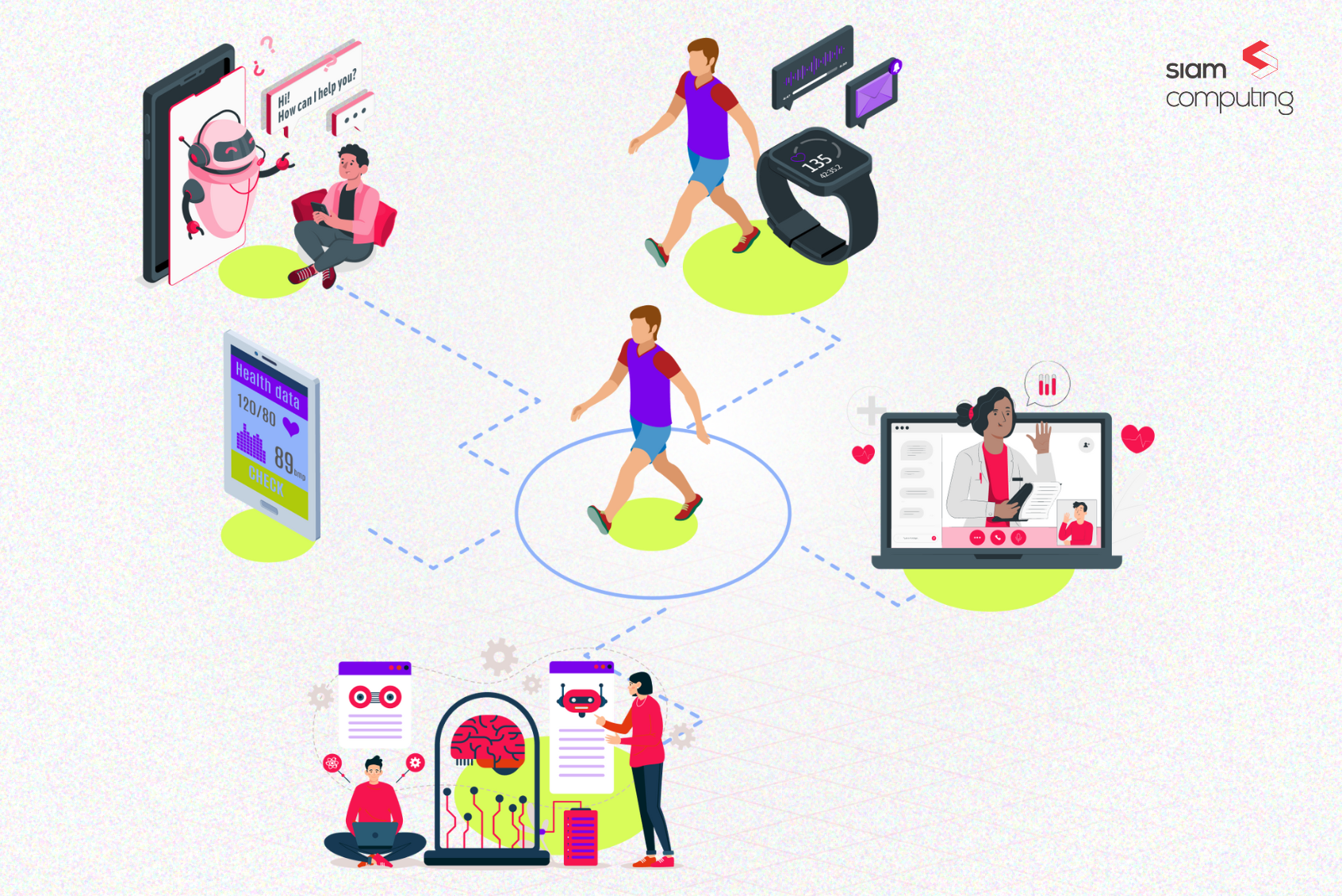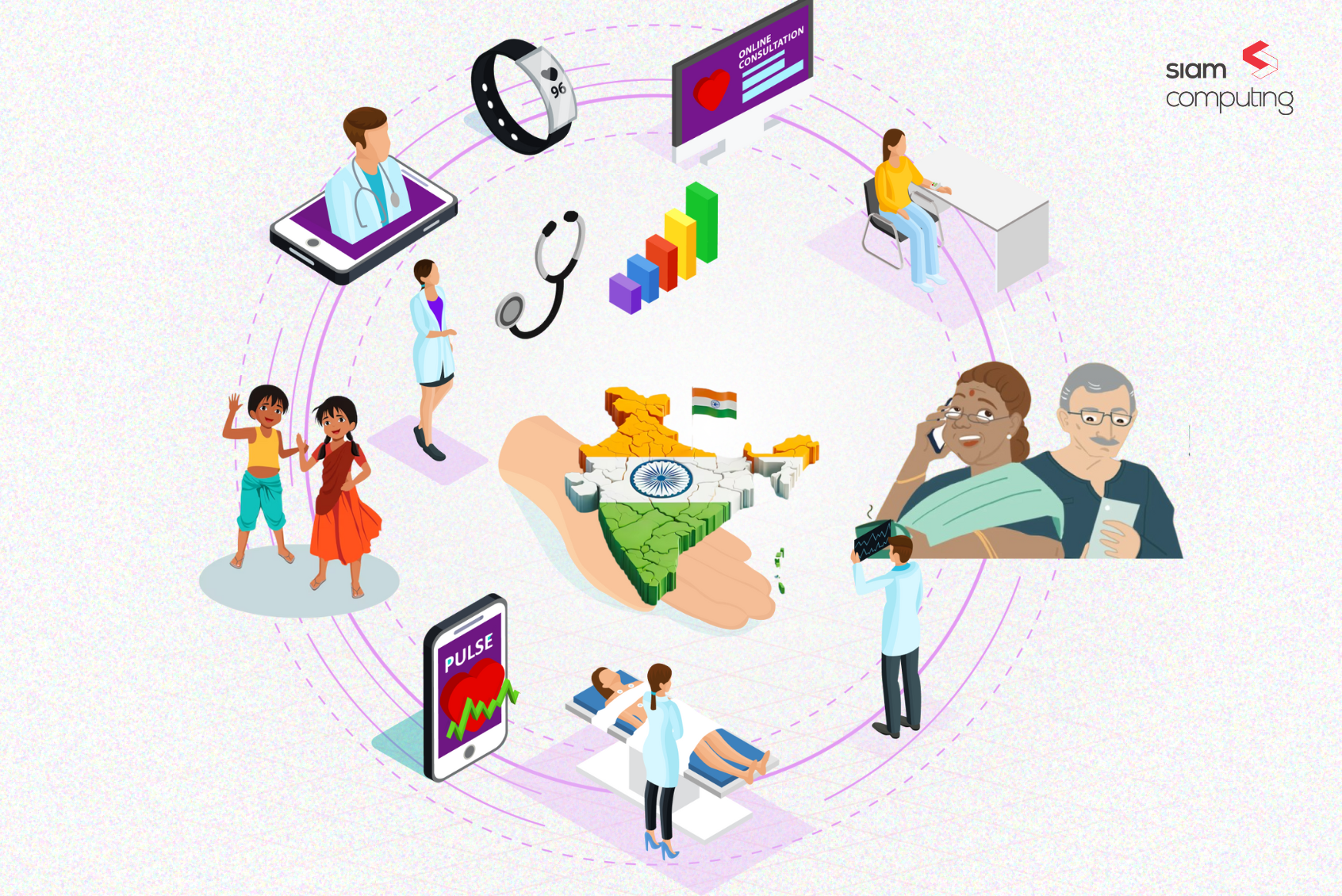Women make up half of the global population, yet most technology is largely built with men in mind. It was only in 2016 that Ida Tin, founder of the period-tracking app Clue, coined the term “FemTech,” legitimizing an area of technology often ignored by the startup and tech circle.
FemTech is a term used to define software and services that use technology tailored towards women’s health. Today, we are seeing that the technology sector is beginning to take women’s healthcare seriously.
For a segment less than a decade old, the FemTech Market size is estimated at USD 7.48 billion in 2024 and is expected to reach USD 14.67 billion by 2029, growing at a CAGR of 14.42% between 2024-2029.
What makes FemTech?
The FemTech industry primarily refers to companies that build software products, tools, and services that enhance women’s health and well-being. These usually target the following issues:
- Menstruation: This includes menstrual cycle tracking apps like Clue, Flo, Glow, Eve, Natural Cycles, My Calendar, etc. It also includes smart menstrual products like LOONCUP, Flex Cup, and Cora tampons that can track and provide real-time information related to menstrual flow.
- Lifestyle: This includes solutions for body and mind well-being like Nurrish, a platform that transforms women’s fitness and nutrition habits or wellness trackers like Bellabeat that monitors health metrics.
- Birth Control: Natural Cycles is currently the only app that has been cleared by the FDA to be used and marketed as birth control. It works by using an algorithm that analyses daily hormone-driven temperature changes synced to a wearable device. Other companies like Tuune, a precision medicine startup that leverages AI and biological testing to match women with contraception that works for their bodies.
- Fertility: A growing list of FemTech companies offering digital solutions to those who try to conceive, addressing in vitro fertilization (IVF), egg freezing, or medical treatments. Among them are tech-enabled fertility clinic Kindbody, the Univfy AI platform, fertility benefits management company Progyny, and FertilityIQ which provides data about fertility clinics and doctors.
- Menopause: FemTech companies that address the needs of women in menopause like telemedicine menopause clinic Gennev, and CurieMD offer remote consultation and mail-order prescriptions of hormonal replacement therapies, or EloCare that has produced a wearable multi-sensor Menopause Assistant for tracking menopausal symptoms.
- Pelvic Health: FemTech apps that offer pelvic floor muscle exercise programs to women who experience bladder control problems or want to improve their pelvic health for better intimacy or faster postnatal recovery. These include Elvie Trainer, an app-connected pebble-shaped pod placed inside like a tampon.
- Sexual Wellness: Sexual health apps, audio guides, audio erotica, and smart vibrators connected to an app, like Lioness.
- Gynecological Health: Solutions that span various healthcare services related to routine gynecologic care or sexual education, like the Supper Izzy AI chatbot that offers personalized data-based health advice to women.
- Pregnancy and Motherhood: This list features pregnancy planning and tracking apps as well as connected and app-paired devices helping women through their journey from conception to birth and in the postnatal period. FemTech companies specializing in this category also build baby monitor apps and apps empowering women to explore maternity care choices or make friends with other new moms in the neighborhood.
- Breastfeeding: Innovators in the mother space include breastfeeding apps, mobile lactation apps for consultation, wearable breast pump makers like Elvie or Willow, breastfeeding communities like Pumpspotting, and breast milk shipping services like Milk Stork for working or traveling breastfeeding moms.
To understand what makes this industry tick, let’s look at some FemTech trends, challenges, and opportunities that come with a FemTech startup journey.
The Global FemTech Scenario
According to Straits Research, indirectly, women significantly impact the expansion of the healthcare industry. Women constitute 50% of healthcare consumers worldwide. Approximately 90% percent of women are the primary healthcare decision-makers in their homes.
Additionally, women are 75% more likely than males to utilize digital healthcare tools. 80% of healthcare providers are female, with the preponderance being nurses. Women’s participation in various sectors promoting healthcare can impact the adoption of FemTech solutions.
No wonder that globally, FemTech has been gaining more interest from investors in recent years. While a broader downturn in dealmaking has slowed investments in 2023, 70 startups still managed to attract $375.1 million globally, according to PitchBook data.
The sector raised a record $2.5 billion in 2021, while 2022 was the second most active year ever with $1.5 billion invested. According to Pitchbook, the amount of venture capital invested in FemTech startups globally has grown by 300% since 2016.
The Indian FemTech Challenge
However, FemTech’s progress is slow in India. If you take the 114 unicorns in India as of 2024, none can be classified as FemTech. Sure, India has a couple of personal care and beauty product brands like Nykaa and The Good Glam on the list. But frankly, none of them can be strictly considered FemTech by definition.
What is striking among the present unicorns is the apparent gender divide – only 15% of the present unicorns of India have at least one female founder, while the remaining companies have no female as their founders.
In India, the main challenge faced by FemTech startups is the reluctance of the male-dominated investor community to talk about women’s health issues. You could argue that FemTech is relatively getting only peanuts when you compare it to the amount of money that is been invested into say food delivery or ride-sharing for instance, where ironically, the road to profitability seems nonexistent.
With the startup sector rocked by recession, the faster growth of FemTech companies and the sprouting of more unicorns is what India wishes for now. It means that the Indian startups should forget racial, gender and caste divides, and work with all of their strength, and resources to encourage FemTech players.
At the same time, I must admit the situation is not all gloom and doom. There is a silver lining.
Despite the stigma, the Indian FemTech sector has received funding deals amounting to USD 98 million in the last few years, with the market now poised to grow at a positive rate of 17% from 2020 to 2026.
Notable Indian FemTech Players
Some notable Indian FemTech startups leading the way include:
Proactive For Her: This health tech startup offers teleconsultation services for problems related to skin and hair care, Polycystic Ovary Syndrome (PCOS), menstrual health, sexual health, and others.
Nurrish: A platform that transforms Indian women’s fitness and nutrition habits. Siam Computing built the Nurrish solution for Simrun Chopra, a renowned fitness influencer in India who wanted to digitize and scale her offline fitness and wellbeing services for women in India and unlock new revenue opportunities.
NIRAMAI: This Bangalore-based startup focuses on early-stage breast cancer detection using machine learning and AI. Their solution is non-invasive, radiation-free, and highly accurate, making it a significant innovation in breast cancer diagnostics
Hera: This Hyderabad-based start-up focuses on general pregnancy and sexual health. The start-up’s e-commerce platform offers clean nutrition, health checks, and follow-up care products.
Zealthy: A reproductive health platform that provides tailored solutions for infertility, including at-home infertility kits and fertility coaching.
What’s new in FemTech
Advanced Reproductive Health Solutions
FemTech apps are booming as women embrace digital tools for reproductive health. This surge is driven by growing awareness of these apps and a desire for more control over fertility. Unintended pregnancies are a major concern, affecting millions and causing serious health risks.
Reproductive health apps empower women by providing personalized insights into their cycles and fertility. These apps predict ovulation, PMS, and even the chance of pregnancy by recording various indicators, such as past periods, sleep patterns, basal body temperature, cervical fluid details, mood, and sexual activity.
More community-centric platforms
Women’s health struggles can often feel isolating, with their needs being dismissed or downplayed. FemTech apps are stepping up to create a solution by creating safe online communities. Through forums, support networks, and group activities, these apps foster a sense of belonging and shared experience.
Users can connect freely, discuss challenges, and gain valuable insights from others on similar journeys. For instance, the Peanut app creates a space for women at all stages of life, from pregnancy planning to menopause, to connect and support each other.
Blockchain solutions for privacy
Heathtech is increasingly turning to blockchain technology to safeguard sensitive health data and the same can be seen in FemTech. This has become more important as women’s reproductive rights face threats from government policies like abortion bans.
Blockchain offers unparalleled security by encrypting and storing information like fertility cycles, menstrual records, and health data in a tamper-proof way. This empowers users with more control. Through cryptographic keys, they can decide who sees their data, granting or revoking access as needed.
AI integrations for hyper-personalisation
As with every industry, AI is set to transform women’s healthcare. With powerful algorithms encompassing machine learning and natural language processing, early disease detection and preventive care can be enhanced. For example, AI can analyze data from wearables and apps to predict ovulation, menstrual cycles, and even potential health issues.
But FemTech with AI goes beyond fertility. By analyzing factors like genetics, medical history, and lifestyle, AI can pave the way for personalized diagnoses, treatments, and early warnings for various women’s health concerns. This empowers healthcare providers to proactively address potential problems, promoting overall well-being.
Let’s Make FemTech Mainstream
As more women take their place in STEM, we’re seeing more female founders solving women’s needs that should have been addressed decades ago. Even investors are starting to take note. FemTech’s rising popularity is attracting VCs eager to invest in this under-explored space.
You could join this revolution by getting a free consultation from product strategists at Siam Computing. Siam’s product leaders comprise 50% women who have built healthcare products for leading multi-specialty hospitals and startups in health tech and fitness tech.
We understand the healthcare and femtech space like no other. The solution we build for you addressing healthcare and wellness for women will give you the right of entry to a marketplace that is expanding quickly and set up your organization for long-term success.








